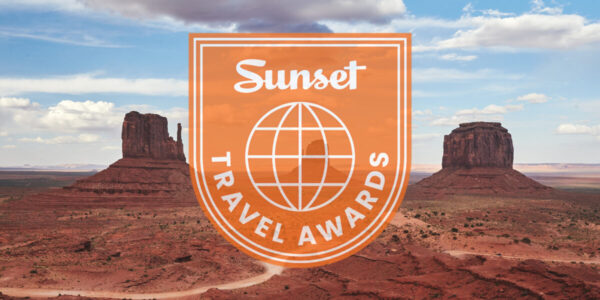
Virtual vineyards
How did Two-Buck Chuck happen? Millions of cases a year are carted away from Trader Joe’s, but where is the winery? For two bucks, we don’t get to know. Fred Franzia, the controversial mind behind Charles Shaw wines (aka Two-Buck Chuck), is putting a big American spin on the Old World tradition of wine négociants: merchant-vintners who buy up small lots of grapes or wine from growers and blend, bottle, and sell it under their own label.
Many people in this country who don’t own a crush pad or barrel room have jumped into the business ― fermenting and aging at custom or co-op facilities. “Virtual wines,” they’re sometimes called.
Two-Buck Chuck represents the low end of the spectrum, Charles Creek Vineyard in Sonoma County the high end. Gerry and Bill Brinton, who launched the label, don’t even consider themselves négociants ― people who, in their mind, snap up bulk wine at the end of the season and would have a hard time repeating quality. The Brintons ― each with an MBA ― have a business model they believe delivers great wine for a fairer price than traditional wineries can. “There’s a lot of overhead in a bottle of wine,” Bill says. “Land, bricks and mortar, salaries … ” Without the layers, they can price a bottle directly on the cost of what goes into it. And they can control the quality. Not limited to estate grapes, the Brintons buy from many great sources and take an active role in the vineyard.
Location, location, location
Richard de los Reyes of Row Eleven Wine Company takes tradition-breaking further. In the 1980s, he saw a big shift in this country from drinking wine by brand name (Gallo, Beringer) to drinking by variety and region (Napa Cab). At the same time, a lot of planting was going on. When the bottom dropped out of the economy a few years ago, and sales of high-end wine tanked, there was a glut of great grapes to be had.
With connections from both winemaking and brokering, de los Reyes began buying grapes from particular vineyards ― even specific rows ― that he considered perfect sources for the varieties he wanted to make (the 11th row of Solomon Hills Vineyard in Santa Maria, California, being the source of his first Pinot Noir grapes). “The beauty of this thing is that you’re not stuck with any property,” he says. “You can go anywhere in the world. Where would you go for Pinot Gris? Oregon’s Rogue River Valley.” He means to sell top-notch wines for about half the going market rate, since he doesn’t have to “charge for the château,” as he puts it.
Between Two-Buck Chuck and the Brintons and de los Reyes, there are “virtual winemakers” of all stripes. Some of them unload shoddy stuff on us; others offer exciting deals. Here’s the rub: It’s almost more important to taste these elusive brands than brick-and-mortar products, but it’s harder; there’s no there ― no tasting room in which to give them a whirl (although Charles Creek has one now, in downtown Sonoma).
Tasting rooms
Fortunately, small co-op tasting rooms are popping up, pouring wines from both virtual and small makers who lack rooms of their own. Here’s a list of where you can find them:
IN CALIFORNIA
Coastal Vintners. 11-5:30 Thu-Mon; no tasting fee. 2323 Tuley Ct., Ste. 120D, Paso Robles; 805/226-8022.
Esquisse Winery and Collective Tasting Room. 10-4 daily; $5 tasting fee. 1155 Mee Lane, St. Helena; 707/963-9999.
Napa Wine Co. 10-4 daily; tasting fee from $10. 7830-40 St. Helena Hwy., Oakville; 707/944-1710.
Vintner’s Collective. 11-6 Wed-Mon, and by appointment Tue; tasting fee from $15. 1245 Main St., Napa; 707/255-7150.
The Wine Exchange of Sonoma. 10-6 Mon-Thu and Sat, 10-6:30 Fri, 11-6 Sun; tasting fee from $1. 452 First St. E., Ste. C, Sonoma; 800/938-1794.
IN OREGON
Carlton Winemakers Studio. 11-5 daily; tasting fee from $3. 801 N. Scott St., Carlton; 503/852-6100.
Dundee Pinot Station. 11-6 daily; $5 tasting fee. 240 S.E. Fifth St., Dundee; 503/538-7100.
Oregon Wines on Broadway. 12-8 Tue-Sat; tasting fee from $2. 515 S.W. Broadway, Portland; 503/228-4655.
Oregon Wine Tasting Room. 11-5:45 daily; tasting fee from $1. Bellevue Intersection, 8 miles southwest of McMinnville on State 18; 503/843-3787.
Ponzi Wine Bar. 11-5 daily; tasting fee from $1. 100 S.W. Seventh St., Dundee; 503/554-1500.
Rogue Valley Wine Center. 10-5 Tue-Sat, 12-4 Sun; complimentary tasting for basic wines, $5 tasting fee for reserve. Carriage House, Voorhies Mansion, Eden Valley Orchards, 2310 Voorhies Rd., Medford; 541/512-2955.
The Tasting Room in Carlton. 11-5 Thu-Sat; tasting fee is 10 percent of the bottle price. 105 W. Main St.; 503/852-6733.
Urban Wineworks. 12-8:30 Mon-Sat, 12-6 Sun; tasting fee from $5. 407 N.W. 16th Ave., Portland; 503/226-9797.
Our picks
We visited two Napa Valley co-op tasting rooms ― Napa Wine Co. and A Dozen Vintners ― that pour wines from both small and “virtual” wineries, and found some real gems, all from the valley.
Downing Family Zinfandel 2003 ($28). Here’s the beautiful side of Zin, with ripe red cherry jam flavors minus harsh alcohol. Pure and lively.
Eagle & Rose Merlot 2002 ($24). An intriguing Merlot ― not as dense and one-dimensional as many. Lively on the palate, with a terrific bolt of spiciness.
Madrigal Petite Sirah 2002 ($35). Well-known vineyard manager Jess Madrigal and his sons make this massive, intense Petite Sirah, with loads of blackberry and boysenberry flavors.
Pavi Dolcetto 2003 ($20). There are fewer than a dozen Dolcettos (an Italian variety) made in the Napa Valley. This delicious one is bursting with vivid red cherry fruit.
Whitford Chardonnay 2002 ($20). A delicious, simple Chardonnay, with elegant touches of nuts, caramel, and vanilla.
Karen MacNeil-Fife
